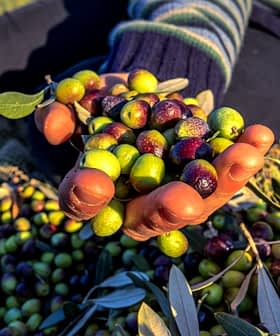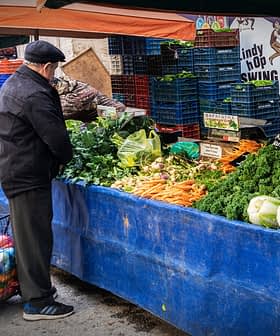A consumer survey examined the eating habits of Greeks and measured the importance they place on healthy eating.
It found that a healthy and balanced diet is not a top priority for Greek consumers, with the majority consuming food without reservations.
Greeks will continue to follow the modern food trends, adding more snacks and meat to their hybrid Mediterranean eating pattern.
The survey results, published online by the Institute of Public Health and the Center of Excellence in Food, Tourism and Leisure of the American College of Greece, also demonstrated that the modern Greeks’ diet has deviated from a typical Mediterranean eating pattern to include more processed food and red meat.
See Also:Greeks Are Consuming Less Extra Virgin Olive Oil“The diet of Greeks is a mixture,” said Athanasios Krystallis, assistant professor at the American College of Greece who led the survey. “It is a hybrid of Mediterranean staples and readymade meals.”
The researchers interviewed 510 Greek adults in November 2021, documenting their lifestyle, health status and everyday habits and came to the following conclusions:
- One in two Greeks weigh more than normal;
- Eight in 10 consume food without any constraint;
- One in four are systematic smokers;
- Three in 10 suffer from a diet-related disease;
- Two in 10 consume a portion of alcohol daily.
The survey results also showed that the consumption of olive oil, fruits and vegetables is high among consumers in Greece. However, processed food, large quantities of red meat, snacks, soft drinks and desserts have also found their place in the eating routine of Greek people.
In addition, the vast majority of the survey participants were oblivious to the Mediterranean diet, even though their eating habits remained to a great extent within the diet’s principles.
“Only one in 10 people we interviewed was aware that their eating pattern adheres to the Mediterranean regime,” Krystallis told Olive Oil Times. “The rest of them were unable to define the MedDiet. However, they stick to it instinctively.”
“It is an impressive finding since the Mediterranean diet was defined several decades ago and we were expecting people in Greece, a Mediterranean country with centuries-old culinary tradition, to be familiar with it,” he added.
The survey also showed that many Greeks consume food in an unplanned manner, while they demonstrate average attentiveness to disease prevention and health promotion.
Around one-third of the participants said that health is defined by fate, and they eat whatever they like without thinking twice, while 40 percent believe they have little capacity to prevent illness.
Melpomeni Peppa, a professor of endocrinology at the University of Athens who participated in the presentation of the survey, emphasized the importance of quality food in disease prevention and control.
“Various diseases including diabetes mellitus, obesity, neurodegenerative disease and cancer often reach epidemic proportions in our time,” Peppa told Olive Oil Times. “Our diet is an important environmental factor associated with maintaining health or the onset of a disease.”
“Quantity and quality of food are equally important, as well as the multiple stages in the food chain, including origin, sterilization, transportation and storage of food,” she added. “There are many environmental ‘destructors’ that can impact food quality and make it harmful.”
Peppa also emphasized that, according to the national nutritional guide of Greece, a well-balanced Mediterranean eating plan should include staples such as fresh fruits, vegetables, fish and legumes, along with four to five portions of olive oil or olives daily (one portion equals a tablespoon of olive oil or 10 to 12 olives).
Krystallis, on the other hand, said despite the majority of the respondents having a good understanding of food value, they exhibited “narrow minds” when it came to their day-to-day meals.
“It seems that nothing can persuade us to change our eating habits,” he said. “Greeks will continue to follow the modern food trends, adding more snacks and meat to their hybrid Mediterranean eating pattern.”
“Consumption of red meat significantly increased in Greece when the country joined the European Union back in 1981,” Krystallis added. “It became much easier to import meat from European producing countries since bureaucratic procedures and taxes were abolished.”
As for the future, Krystallis expects that there will be a radical transformation in people’s dietary habits.
“We must be prepared for groundbreaking changes in our eating preferences,” he said. “There is simply not enough food on the planet for all the livestock needed for human consumption, so we will have to move away from animal protein and turn to other protein sources such as insects, seaweed and algae.”
“This is not a scenario on paper,” he added. “Relevant research within the E.U. has advanced significantly in recent years, and it will become a reality in the very near future. By the time there is even a single such product on the supermarket shelves, the race is on to measure consumers’ reactions and eventually start mass production.”










